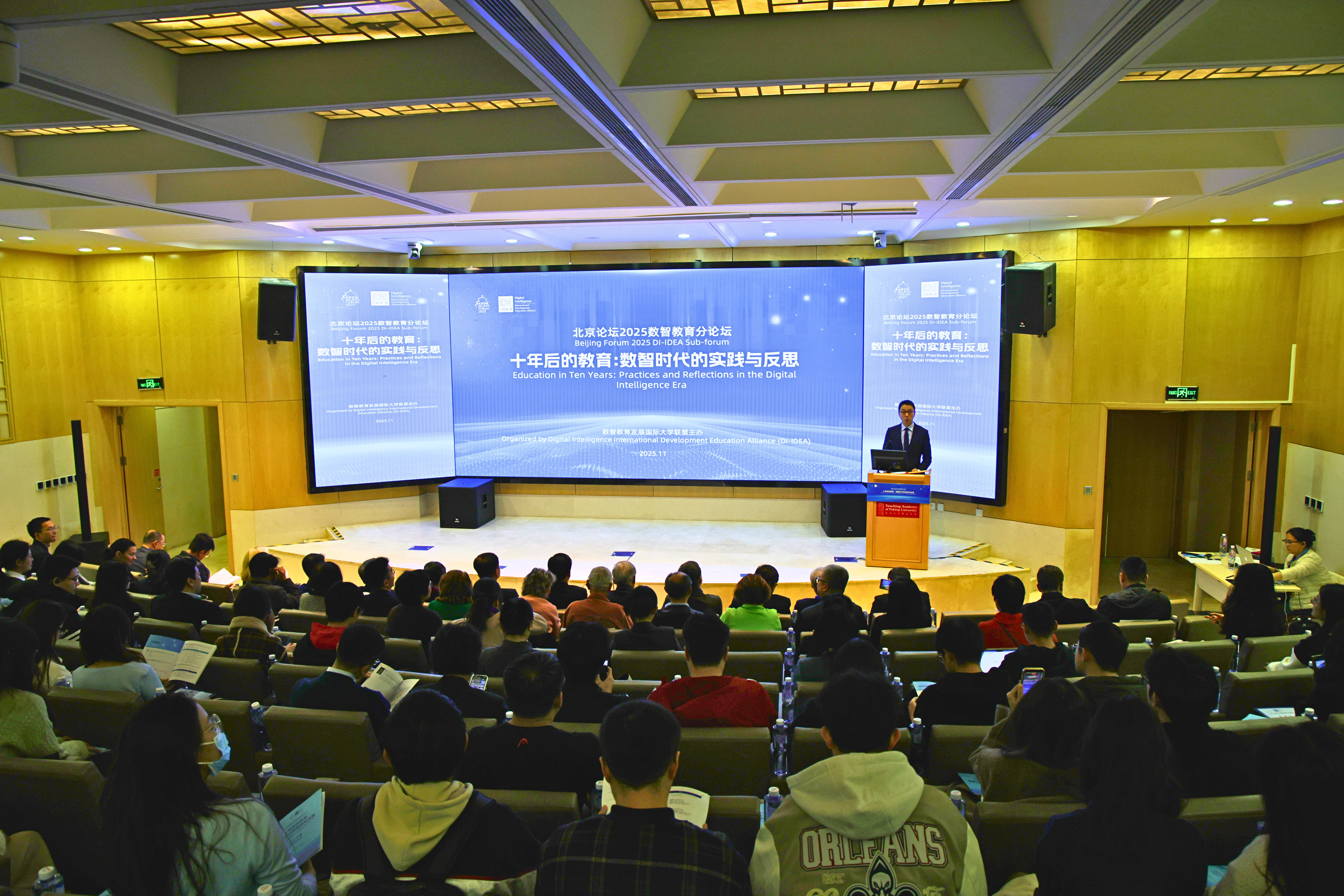 Peking University, November 13, 2025
Peking University, November 13, 2025: The rapid ascent of artificial intelligence is not a future challenge but a present-day reality for global higher education. This urgent theme dominated a pivotal panel, “Education in Ten Years: Practices and Reflections in the Digital Intelligence Era,” held at the Beijing Forum 2025 on November 8. Against this backdrop, a clear throughline emerged from the conference: the need to fundamentally redefine education’s mission to harness AI without sacrificing the core of human intellect.
The session, featuring presidents and rectors from leading universities across Asia, served as a microcosm of the forum’s central debate. They grappled with a critical disconnect highlighted by Sun Hua, Secretary General of DI-IDEA, who noted, “The businesses are working far more advanced than the academic courses.” This gap between industry innovation and academic adaptation framed the entire discussion.
When asked about their greatest anxieties, the leaders shared a concern about the relevance of current education models. Yeom Jaeho, President of Taejae University, highlighted the struggle to shift from 20th-century knowledge-building towards fostering creativity and critical thinking. S. Joe Qin, President of Lingnan University, pointed to a tangible crisis, warning that graduates risk being unemployable within five years if curricula do not evolve. His institution’s official integration of AI tools like ChatGPT exemplified the proactive adaptation the forum champions.
A key tension defined the dialogue: Is AI a facilitator or a threat to human cognition? Andrei Karol, Rector of Belarusian State University, cautioned that AI could diminish logical thinking, advocating a model in which students are “active players, not just listeners.” Winston Ong, Vice President (Corporate) at Singapore University of Social Sciences, raised a more profound concern, stating that AI is “cloning us,” potentially eroding original creativity.
Yet, from this tension emerged a powerful consensus. The panelists agreed that the core mission of education must now be to “learn how to learn,” a foundational, uniquely human skill that AI cannot replace. The future, they concluded, lies not in resisting AI, but in strategically embracing it as a tool for personalized, problem-based learning while relentlessly focusing on developing intrinsic human capacities.
The panel’s resolution provided a clear answer to the forum’s overarching question: the university of the future must be a lifelong learning engine, empowering students to navigate a world where knowledge constantly evolves, anchored not in what they know but in their ability to think, create, and adapt.
Written by: Jawad Shabbir
Edited by: Chen Shizhuo
Photo by: Office of International Relations
